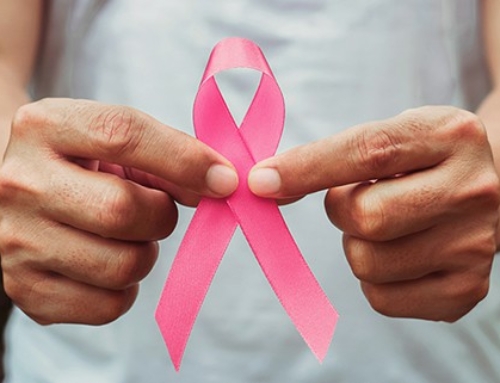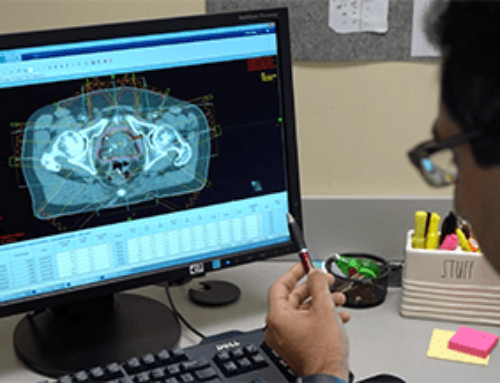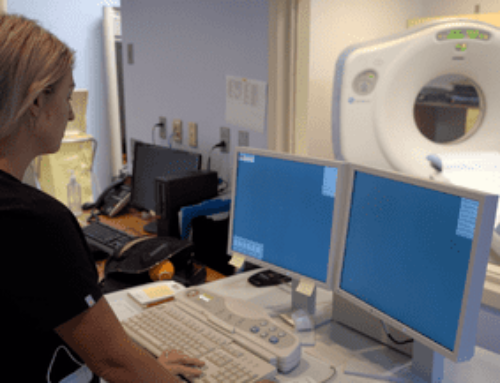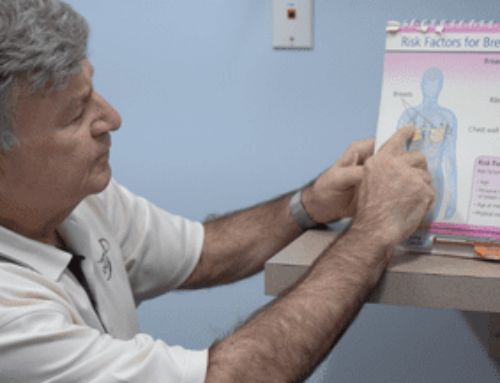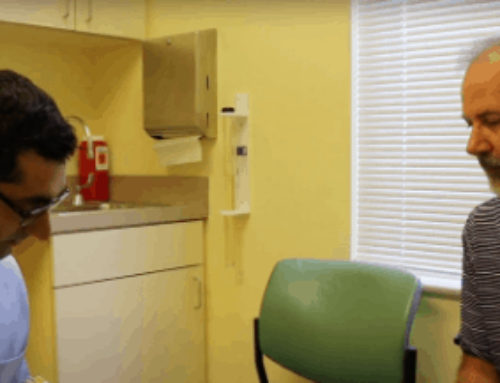When detected and treated early, the vast majority of prostate cancer patients are able to successfully overcome the disease. However, many people who are diagnosed with prostate cancer wonder if there were ways the disease could have been prevented in the first place.
“We get a lot of questions about how to prevent prostate cancer,” says Steven G. Lester, M.D., F.A.C.R.O., a board-certified radiation oncologist at Central Florida Cancer Care Center. “Especially from family members when they come in, and Dad has been diagnosed with prostate cancer.”
What Is Prostate Cancer?
Prostate cancer is the development of cancer in the prostate — a small walnut-shaped gland in men that produces the seminal fluid that nourishes and transports sperm. A cancerous (malignant) tumor is a group of cancer cells that can grow into and destroy nearby tissue.
Prostate cancer is one of the most common types of cancer in men. Usually, prostate cancer grows slowly and is initially confined to the prostate gland, where it may not cause serious harm. However, when it becomes more aggressive, prostate cancer can also spread (metastasize) to other parts of the body.
Prostate cancer that’s detected early — when it’s still limited to the prostate gland has a better chance of successful treatment.
Can Prostate Cancer Be Prevented?
According to Dr. Lester, although no decisive methods exist for preventing prostate cancer, some adjustments in lifestyle and diet may help ward off the disease.
“Unfortunately, we don’t have a pill we can give you to prevent prostate cancer,” he says. “There have been several studies that have looked at some of the medications used for enlarged prostates to see if they would reduce the risk of prostate cancer. And they haven’t been proven to be effective enough.”
 “I think when one deals with prostate cancer prevention, what we would like to do at this point since we can’t prevent it, is to prevent high-risk prostate cancer, the more aggressive prostate cancer. And there is some data that certain lifestyle and dietary modifications may be able to accomplish that. The data is based on looking at people from other cultures who have moved to our country and changed their diet. When those people adopted a higher fat diet with fewer soybeans, they seem to have more aggressive prostate cancer.”
“I think when one deals with prostate cancer prevention, what we would like to do at this point since we can’t prevent it, is to prevent high-risk prostate cancer, the more aggressive prostate cancer. And there is some data that certain lifestyle and dietary modifications may be able to accomplish that. The data is based on looking at people from other cultures who have moved to our country and changed their diet. When those people adopted a higher fat diet with fewer soybeans, they seem to have more aggressive prostate cancer.”
A Heart-Healthy Diet Can Make a Difference
Just as there are foods that can hurt the prostate – foods to avoid, or at least not eat very often – there are also “prostate-friendly” foods that protect the prostate in various ways.
“A lot of what you would consider a heart-healthy diet is also good for reducing the risk of high-risk prostate cancer,” says Dr. Lester. “We encourage patients to follow a low saturated fat diet. We’d like them to incorporate some omega-3s into their diet by eating fish. We would say eating more tomatoes is beneficial because of the lycopene. Eating some soybean protein is important. Some data indicates that drinking some freshly brewed tea every day may help.”
Dr. Lester stresses that where one’s diet is concerned, it’s more about quality than quantity. “When patients hear about the research, they always want to know how much they should eat, and we don’t really know how much,” he says. “The idea is to work it into your diet. If you enjoy the food product, make sure you eat it. If you don’t, you can try some different supplements to get the more beneficial proteins out of soybean.”
Watch Your Weight and Exercise
 Numerous studies have indicated that obese men have a higher risk of dying from prostate cancer, developing a more aggressive cancer, and experiencing disease recurrence after surgery or radiation therapy. The Cancer Prevention Study showed that men with a body mass index (BMI) of greater than 32.5 kg/m2 were 35% more likely to die of prostate cancer than men whose BMI was less than 25.
Numerous studies have indicated that obese men have a higher risk of dying from prostate cancer, developing a more aggressive cancer, and experiencing disease recurrence after surgery or radiation therapy. The Cancer Prevention Study showed that men with a body mass index (BMI) of greater than 32.5 kg/m2 were 35% more likely to die of prostate cancer than men whose BMI was less than 25.
“We’ve noticed that patients with higher body mass index seem to have more prostate cancer when they have their prostates removed,” says Dr. Lester. “So the idea is to reduce your weight, and that may help by reducing fats in the diet and getting better blood sugar control. There is some data that tighter blood sugar control may benefit patients with prostate cancer.”
“Exercise helps, and so does reducing stress,” Dr. Lester continues. “Data shows that patients with sleep apnea potentially have more cancers, and we encourage our patients who have sleep apnea to use their CPAP.”
Vitamin D May Be Key
Several studies have related higher blood levels of 25-hydroxy-vitamin D and reduced risk of many deadly cancers, including colon, breast, and prostate cancer. And there is mounting evidence that one of the primary functions of vitamin D is to help regulate cellular growth.
“Another variable that may affect prostate cancer is a lower vitamin D level,” says Dr. Lester. “We think it’s important to get your vitamin D level checked and increase vitamin D in your diet or through supplements. If you take it through supplements, make sure you take it with a meal as it doesn’t absorb well on an empty stomach.”
To learn more about prostate cancer prevention and treatment, please feel free to contact us.

